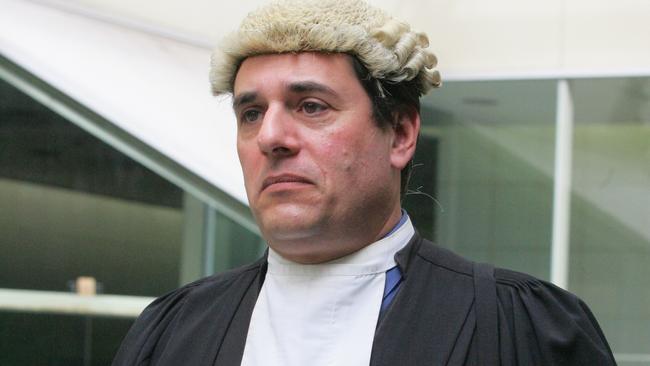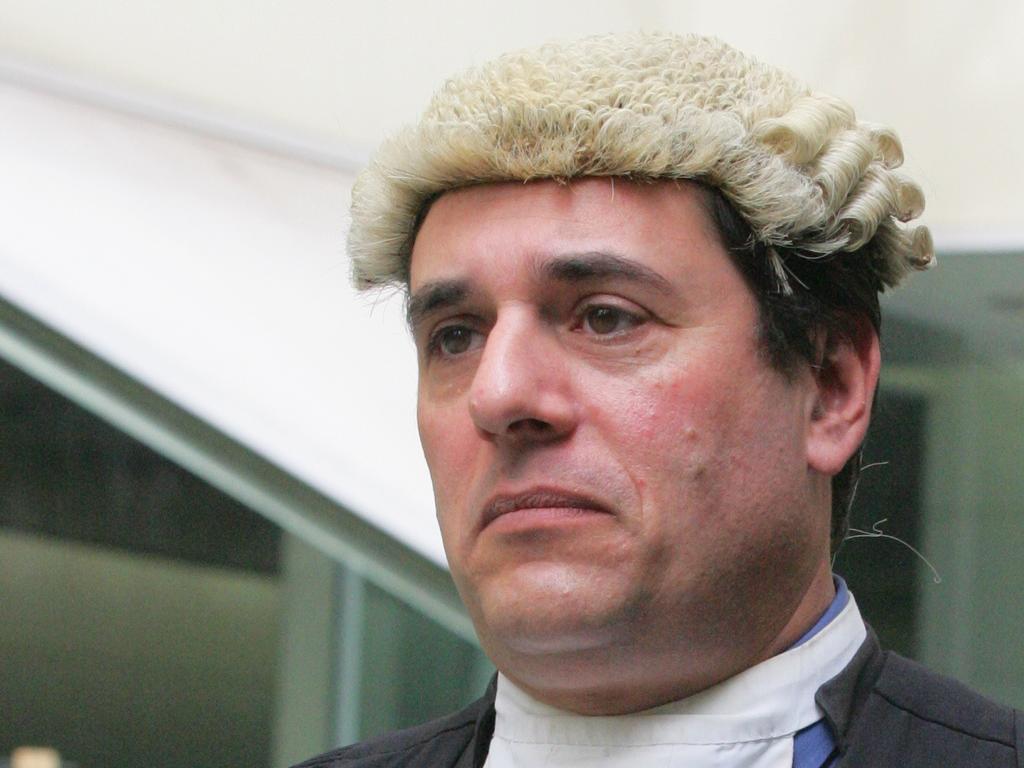Law Council wants independent body for judge complaints
The Law Council has pushed for an independent body to handle complaints amid Sal Vasta’s ‘unbecoming’ conduct.

The Law Council of Australia has renewed calls for an independent body to handle complaints about federal judges after a controversial judge was found to have displayed an apprehension of bias in a case involving an unrepresented litigant.
Federal Circuit Court judge Sal Vasta repeatedly interrupted the woman, who was seeking $750,000 in compensation from the Commonwealth Bank, shouted at her for speaking over him and told her that one of her arguments was “rubbish”.
The full Federal Court on Monday sent the case back for rehearing by a different Federal Circuit Court judge, after listening to an audio recording of the hearing before Judge Vasta. The judges said he had adopted an “enraged and intimidating tone of voice” and at one point engaged in a “long, unedifying and argumentative exchange” with her.
As a result, “a fair-minded lay observer might reasonably apprehend that the primary judge might not have brought an impartial and unprejudiced mind” to the case, they said.
Law Council president Arthur Moses SC said Judge Vasta’s conduct was “unbecoming”.
“To speak plainly, the behaviour of Judge Vasta in this case which has been criticised by the Full Court of the Federal Court is unacceptable and unbecoming of somebody who holds judicial office,” he said.
“No member of the judiciary is entitled to engage in bullying or intimidatory behaviour.
“The situation is made worse when it is directed towards unrepresented litigants. This brings the administration of justice into disrepute.”
He said while the conduct of the overwhelming majority of judges was “beyond reproach”, the case showed the need for a federal judicial commission that could “independently assess and deal with any complaints concerning a judicial officer in order to ascertain whether, by reason of misbehaviour or incapacity, that person should not continue to hold office”. This would help parliament consider the issues in relation to any potential removal of a judge from office under section 72 of the Constitution, he said.
“The present situation is undesirable as it leaves it to a head of jurisdiction to deal with complaints concerning a judicial officer,” he said.
“That is not appropriate for transparency or accountability issues.
“Further, it also then raises questions as to why the head of a jurisdiction was not aware of the conduct of a judicial officer despite repeated appeals before action is finally taken. These are matters that would not arise if there was a Federal Judicial Commission.”
Judge Vasta agreed earlier this year to stand aside from his administrative roles in the court and is receiving mentoring after a string of cases in which he was criticised on appeal.
In July, he was found to have been “sarcastic, disparaging and dismissive” and interrupted a man’s case in such an “egregious” way that he denied him a fair trial when he jailed him for contempt of court.
In yet another case in August, he was found to have been “frequently aggressive, rude and overbearing”, made unjustified threats of contempt charges and interrupted a man’s case so often he denied him a fair hearing.
The full Family Court also earlier this year labelled Judge Vasta’s decision to jail a father of two for contempt an “affront to justice”.
Mr Moses said the cases showed that a separate chief judge was needed for each federal court.
The Chief Judge of the Federal Circuit Court, Will Alstergren, is also the Chief Justice of the superior-level Family Court.
“It is not possible for one person to lead both courts and know what is occurring in relation to each judge,” Mr Moses said.
“There were multiple issues over a period of time concerning this judge before action was taken. This is not good for litigants or the welfare of judges.”
He said this was not meant as a criticism of the Chief Judge.
The Federal Circuit Court declined to comment on the most recent case.
A court spokeswoman told The Australian in August that Judge Vasta had managed “an extremely heavy workload” over the past three years, and that since his appointment in 2015 he had delivered more than 1240 judgments. She said he was receiving mentoring to support him to fulfil his duties.
She said the court had a “comprehensive complaints procedure”.
“The court assesses each complaint and takes action as appropriate in response to the gravity of the complaint,” she said at the time.
“The Chief Judge has a number of steps available to him, including; counselling, mentoring and in exceptional circumstances, the judge in question may be temporarily removed from sitting.”




